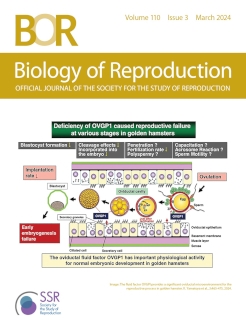Maternal decidual cells are crucial for the maintenance of canine pregnancy as they are the only cells expressing the nuclear progesterone (P4) receptor (PGR) in the placenta. Interfering with P4/PGR signaling adversely affects decidual cells and terminates pregnancy. Although immortalized dog uterine stromal (DUS) cells can be decidualized in vitro using cAMP, the involvement of cAMP-dependent kinases in canine decidualization had not been investigated. Therefore, the present project investigated changes in the kinome of DUS cells following in vitro decidualization, using the serine/threonine kinase (STK) PamChip assay (PamGene). Decidualization led to a predicted activation of 85 STKs in DUS cells, including protein kinase (PK) A, PKC, extracellular signal-regulated kinase (ERK)1/2 and other mitogen-activated protein kinases (MAPKs), calcium/calmodulin-dependent protein kinases (CAMKs), and Akt1/2. In addition, blocking PGR with type 2 antigestagens (aglepristone or mifepristone) decreased the activity of virtually all kinases modulated by decidualization. The underlying transcriptional effects were inferred from comparison with available transcriptomic data on antigestagen-mediated effects in DUS cells. In targeted studies, interfering with PKA or MAPK kinase (MEK)1/2 resulted in downregulation of important decidualization markers (e.g., insulin-like growth factor 1 (IGF1), prostaglandin E2 synthase (PTGES), prolactin receptor (PRLR), PGR, and prostaglandin-endoperoxide synthase 2 (PTGS2/COX2)). Conversely, blocking of PKC decreased the mRNA availability of IGF1, PGR, and PTGS2, but not of PTGES and PRLR. Moreover, suppressing PKA decreased the phosphorylation of the transcription factors cJUN and CREB, whereas blocking of PKC affected only cJUN. This first kinomics analysis to target decidualization showed an increased activity of a wide range of STKs, which could be hindered by disrupting P4/PGR signaling. Decidualization appears to be regulated in a kinase-dependent manner, with PKA and PKC evoking different effects.
Summary Sentence
Serine/threonine kinases in canine uterine stromal cells increase during decidualization but are disrupted by P4/PGR signaling interference; PKA and PKC have distinct effects on decidualized cells' function.
Graphical Abstract






